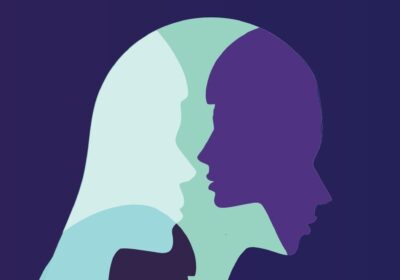One of the biggest misconceptions about the business of life-coaching, is that it is a mask for the business of therapy. Some would even dare to say that it is considered therapy from an unlicensed practitioner. Even though both professions deal with mental and psychological health, many argue that they’re very different.
We here at 925 decided to take the initiative and find out ourselves what differentiates a life coach from a therapist; which is why we sat down with Noha El Nahas — a counselor at AUC’s counseling center and founder of HEAL — and Rana Saleh — a certified life-coach who managers her sessions through her facebook page Live Your Magnificience– to find out once and for all.
How does one define therapy?
Noha El Nahas: Therapy literally means a process where you heal or remove pain. If we take it from the psychological perspective, then we could say that it is the process through which a client would meet with a therapist to work on certain problem, either problematic behavior, distorted thoughts, emotional distress, etc.
Rana Saleh: I highly believe that psychological illness is an unconscious decision, therefore therapy for me is the process of re-decision, the process of deciding to get better.
What are the cases you usually deal with?
Noha El Nahas: I deal with different types of cases, starting from general emotional pain or struggles due to day to day stressors, up till psychological disorders such as Depression, OCD, anxiety and personality disorders.
Rana Saleh: People who want to apply change to their lives.
How do you deal with these cases? What’s your way of treating people? What methods do you use?
Noha El Nahas: I believe that each case is special in its own way. Each person is different and I have learned that throughout my 12 years of experience. What might work for one person might not necessarily work for another. So, even if the problem is similar to ones I have worked with before, I still deal with every patient differently. Generally, however, I take an eclectic approach, which means to combine various types of therapies based on the case.
Rana Saleh: I don’t treat, I coach using questions, listening, understanding and giving space along with other coaching methods and tools. I’m not a doctor nor do I treat people with coaching. I sometimes use hypnosis, which I’m certified in, to support my clients to reach their goals.
What do you think about life-coaching?
Noha El Nahas: I believe that life coaching is a good way to help people deal with specific, surficial struggles that are not related to psychological problems. If the coach is “well” trained, then they could accomplish great results with their clients.
Rana Saleh: Life coaching is about supporting someone to get from point A to point B. Life coaching focuses on asking questions and supporting the person dig more into their creativity and create their plans for getting to where they want. Life Coaching deals with the health of the individual as a whole.
Do you think life-coaching really matters or is it just a trend?
Noha El Nahas: I believe that life coaching is new in Egypt and anything new becomes appealing. What I have noticed is that many people are shifting careers to become life coaches to pursue the passion of helping others, which is amazing. I think that the fact that Life coaches’ certificates and trainings are relatively easier and shorter in comparison to similar services could be making it appealing, therefore some people might call it a “trend.” I believe that coaching matters and it does help a lot of people to reach their goals. I have seen its efficiency with several cases but again only when the coach is well trained and certified so that they could help their client.
Do you think that therapy is an outdated method for treating people?
Rana Saleh: Of course not, therapy will never be an outdated method as a treatment. Yet, it is as important as any other form of medicine.
Do life-coaching and therapy meet at any point? Complement each other? Highly irrelevant to each other? Or exactly the same thing?
Noha El Nahas: Psychotherapy is not life coaching. In order to become a psychotherapist, you need at least an MA and intensive trainings, which requires years and years of work. The reason why psychotherapists remain years studying is because of the intensity of the cases they deal with. Meaning, a life coach should not work with clients who are suffering from psychological disorders because they were not trained to do so. Here comes the ethical part, again, like in any field. I have had several referrals before from professional life coaches who felt that the case needed more depth and was linked to psychological problems and passed them on to me, this is what an ethical and well-trained life coach should do. On the other hand, I personally suggest career coaching to many of my clients as they use techniques that are goal oriented and gives people an energetic boost. To answer your question, I personally think they do meet at some points but are not the same thing at all.
Rana Saleh: They meet at a few points such as listening and understanding, giving space and asking questions and digging deeper for solutions. Other than that therapy definitely deals with severe and intense cases that are beyond life-coaches’ areas of expertise.




























